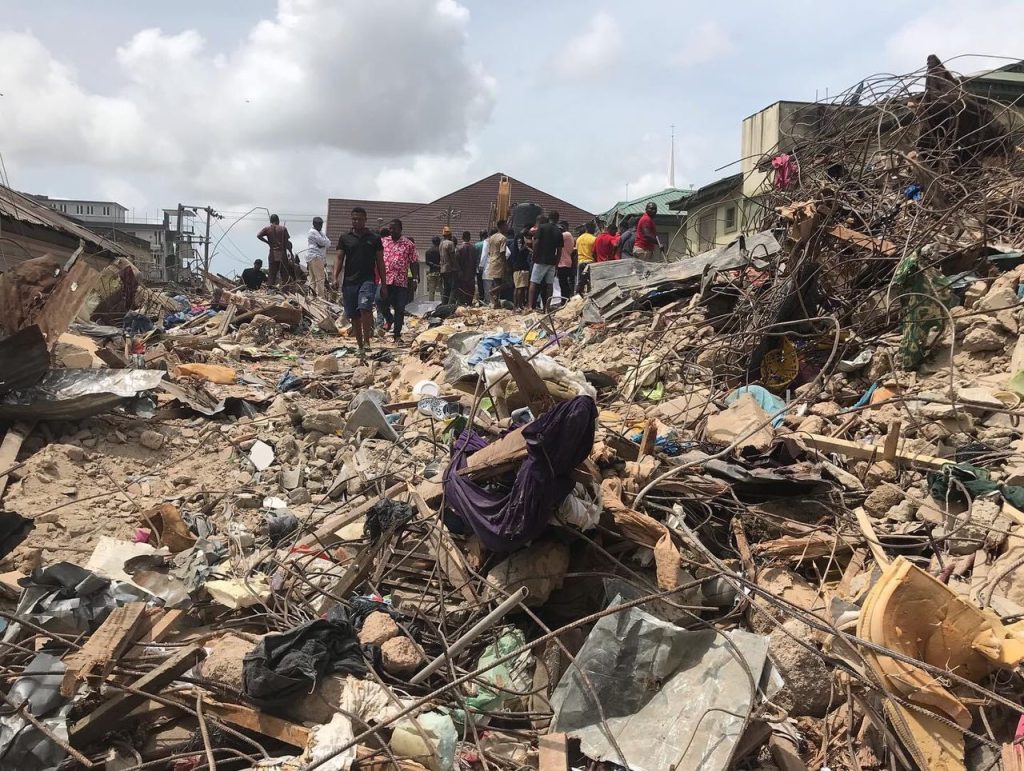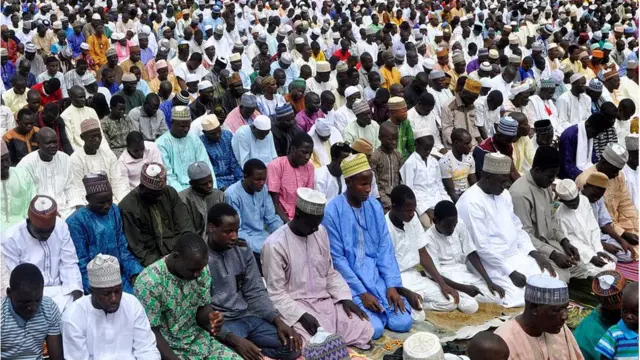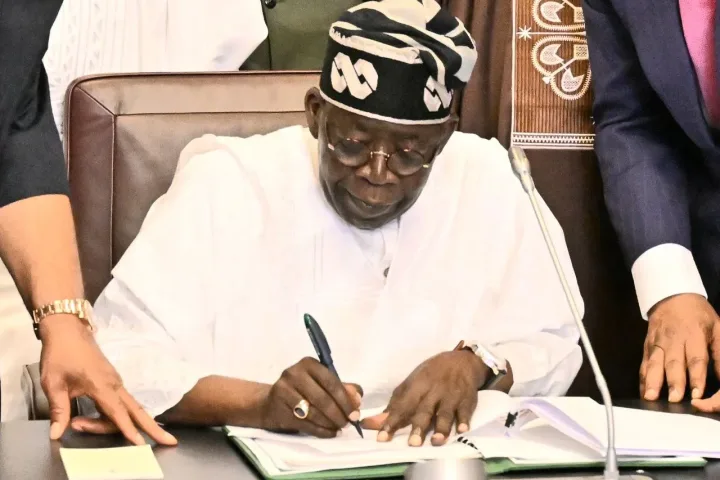The collapse of a three-storey building at 32, Ibadan Street, Ebute Metta, Lagos, on Sunday night has gone into the historical record of structural collapses in Lagos and Nigeria generally, leaving in its trail, tales of painful loss of lives and properties.
With dozens confirmed dead and 24 people rescued, as announced by the Lagos State Emergency Management Agency, since operations started for evacuation of debris in search of trapped victims at the scene of the collapsed building, the usual trading of blames of who was responsible for the accident between estate regulatory authorities, structural professionals and individual house owners have once again taken centre stage.
Many observers say such has been the case at every encounter with building collapse, but after days and weeks, no significant effort is made to properly address root causes of the incidents by the appropriate authorities.
Join our WhatsApp ChannelThe collapsed building at Ebute Metta reportedly had alongside others around the area, been earmarked as distressed and out for demolition with the occupants already served quit notice by the owner some months before, but according to some eyewitnesses in a media interview, they refused to vacate until the building went down.
The building collapse in Lagos is the second in the last two months. In February this year, a three-storey building collapsed in Yaba area of the state where not fewer than four people were confirmed dead.
In November last year, another 21 storey building still under construction in Ikoyi, Lagos collapsed, killing the owner Mr. Femi Osibona and about 42 others. Each time such an incident occurs, it raises questions as to what went wrong, is it a case of poor construction by quacks, or lack of maintenance for existing structures or poor regulatory oversight by urban structural development authorities,
Speaking at Channels TV SunriseDaily show on Tuesday morning concerning the incident, President of Nigerian Institution of Structural Engineers (NISE), Engr Peter Igbinijesu, said the cause could be multifaceted.
Igbinijesu who is a Fellow of Nigeria Society of Engineers (NSE), spoke on different issues that could lead to building collapse in the country.
On the attitude of Nigerians, the structural engineer said occupants who knew that the building has been earmarked as distressed but remained there could be because they had no alternative, coupled with the fact that regulatory authorities lacked enforcement capacity to evict them from the property which contributed to making the residents feel relaxed until the building crashed.
He stated that there is a certain maximum period given by government authority as provided in the law for occupants of a distressed building to vacate, and such ought to be maintained. In a situation whereby the authority fails to carry out demolition enforcement at the expiration of the maximum period given, such authority is culpable if anything happens, he stated.
Speaking on the possibility of house owner collecting rent after the house has been marked for demolition, which could be a source of encouragement for the residents to continue staying, the NISE president said such is a criminal act and if found to be true, he/she should be prosecuted for toiling with people’s lives.
A day after the building collapse at Ebute Metta, officials of the Lagos State Building Collapse Agency began evacuation of occupants of a three-storey building showing serious signs of distress to save lives. The building in question is said to be about 200 metres away from the one that collapsed on Sunday night. According to the Southwest Zonal Coordinator, National Emergency Management Agency (NEMA), Mr Ibrahim Farinloye, “the building had earlier been marked as distressed but the occupants were deviant in leaving the premises.”
On the humanitarian side, Igbinijesu said if the government can provide alternative housing in the interim for the survivors and those who were evicted from other nearby distressed buildings, that would be nice to enable them have some time to get better accommodation.
READ ALSO: How To Tackle Building Collapse In Nigeria, By Engr Ezenta
Commenting on structural issues, Igbinijesu said there are three major areas that are involved- the design stage, construction and use. He said buildings that collapsed after many years of use could be that their usage has exceeded what they were originally designed for; like adding more loads on the structures which imposes much more stress on them. He explained that “buildings are subjected to vertical and horizontal loads. May be these buildings were designed for residential purposes and may be somewhere along the line some parts (rooms) may have been converted to other usages. In other words, you are putting additional loads on what the foundation can carry. There are a lot of reasons that can be responsible for the collapse,” Igbinijesu stated.
Building Maintenance
The NISE president said every structure is designed and erected with a certain purpose in mind which it will serve to withstand all kinds of forces when in use. He emphasized that after years of use, there is a need for periodic checks and maintenance of structures and also ensure that the usage is in line with factors taken into consideration during the design and construction of the building.
“Ensure that the primary aim for the usage of the building is adhered to and if peradventure you need to change the usage, you can also go back to the professionals that constructed the building so that they advise you on the implication and additional support you need to put on the structure,” the NISE President advised.
Igbinijesu who said that buildings can expire or wear down, advised property owners to carry out maintenance on them at least every five years. To do this, he said house owners should engage the services of professional experts to carry out structural integrity test of their buildings and certify them as safe or not.
He said tenants should check the quality of buildings they want to rent to determine their state.
He stated that despite the cases of incessant building collapses across Nigeria, structural developers still engage the services of quacks instead of professional structural engineers.
READ ALSO: REVEALED: ‘Why And How 21-storey Ikoyi Building Collapsed In Lagos’
On the side of regulatory authority, a Canada-based structural engineer Ben Ezenta in an interview with Prime Business Africa, said they need to be up on the game of regular checks on structures both new and existing ones, noting that individuals even in developed countries do not voluntarily subject their activities to standard procedures without being checked.
Victor Ezeja is a passionate journalist with seven years of experience writing on economy, politics and energy. He holds a Master's degree in Mass Communication.


















Follow Us